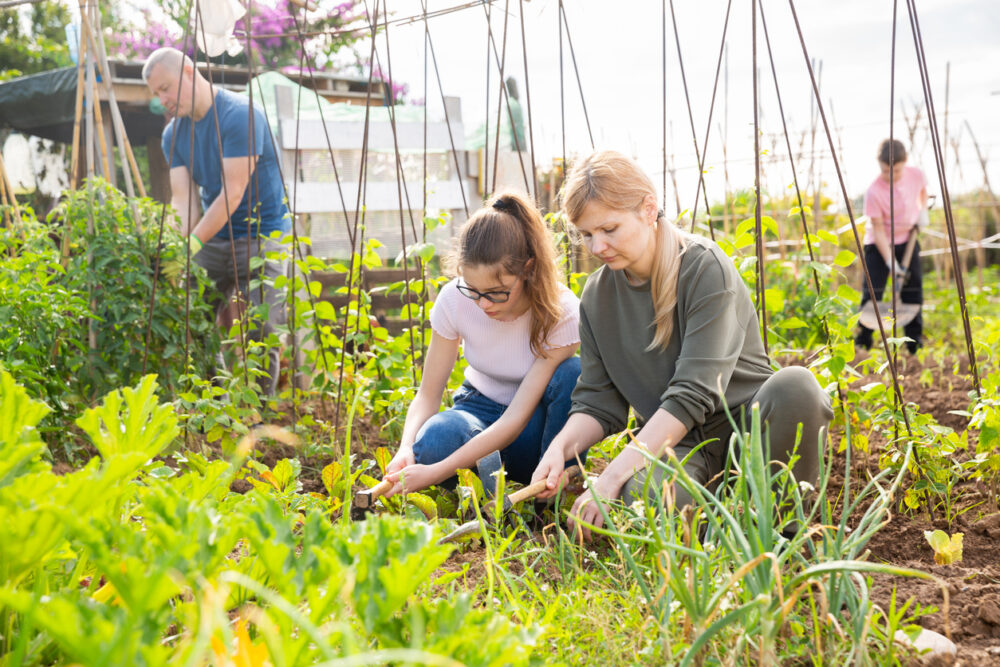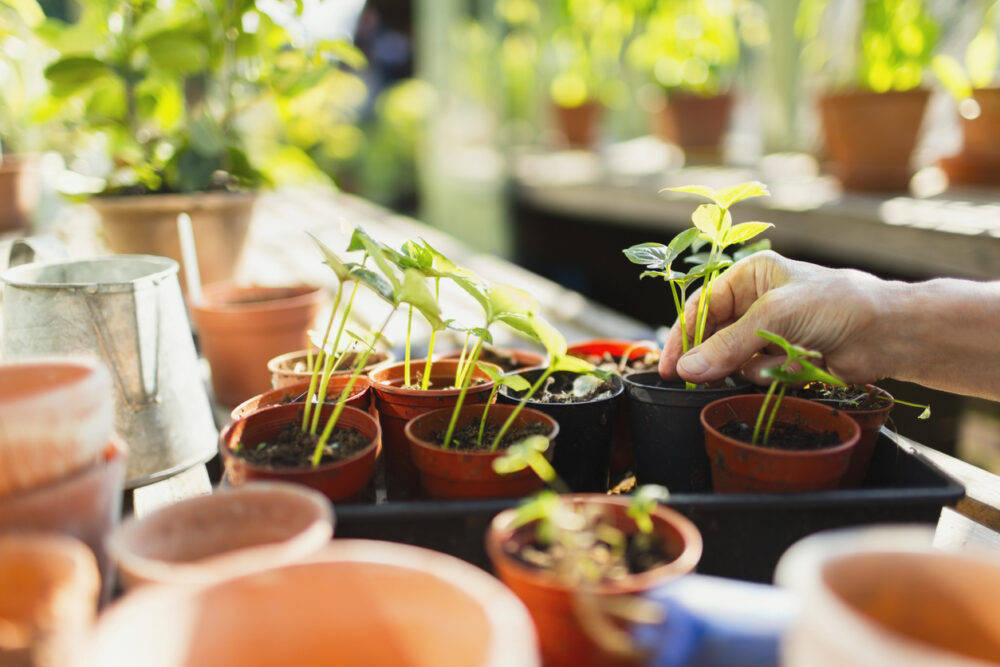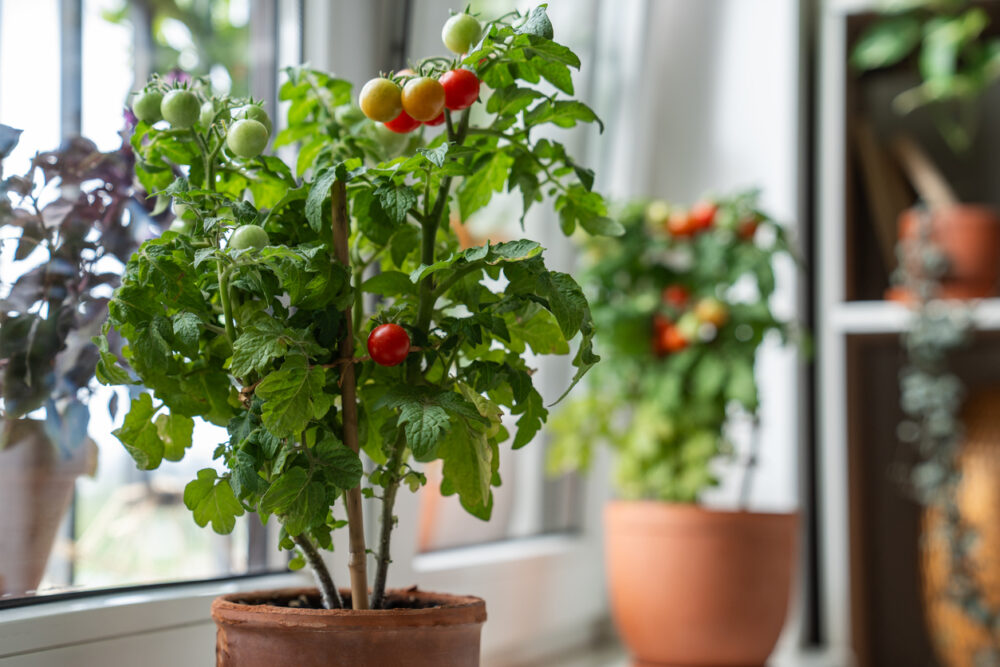
This August we take time to celebrate the joys of growing your own food and the incredible benefits this hobby can bring to our physical and mental wellbeing. Whether you are lucky enough to have an allotment or simply want to grow some vegetables in your garden or even on your windowsill, engaging with nature and cultivating plants can significantly enhance your health.
The Health Benefits of Gardening
- Physical Exercise
Gardening involves various physical activities, such as digging, planting, weeding, and harvesting, which provide an excellent workout. In fact, just an hour of gardening can burn as many calories as jogging for the same amount of time. This helps improve cardiovascular health, build strength, and enhance flexibility. - Nutrition Boost
Growing your own vegetables means access to fresh and organic produce right at your doorstep. Homegrown vegetables are not only more flavourful but also packed with nutrients that can contribute to a well-balanced diet. Engaging with your food source encourages healthier eating habits, as you’re more likely to incorporate what you grow into your meals. - Mental Wellbeing
Numerous studies reflect the therapeutic effects of gardening. Spending time outdoors, surrounded by plants, can reduce stress, anxiety, and depression. The act of nurturing a garden fosters a sense of purpose and accomplishment, while the beauty of blooming flowers and lush vegetables can bring joy and satisfaction. - Connection to Nature
Gardening creates a direct connection to nature, promoting mindfulness and reducing feelings of isolation. Even tending to a single plant, like a tomato, encourages individuals to be present and connected to their environment. This re-engagement with the natural world can be incredibly grounding and restorative. - Community and Social Connection
Allotments are often communal spaces that foster connections with others who share similar interests. Participating in a community garden or visiting your local allotment can provide social interaction and build camaraderie, promoting emotional health and well-being.

Tips for Growing Your Own Veggies
If you have an allotment
- Plan Your Plot: Start with a plan that includes a variety of crops to ensure continuous harvest throughout the season.
- Rotate Crops: Implement crop rotation to maintain soil health and prevent pest issues.
- Stay Committed: Regular visits to your allotment will keep your plants thriving and reinforce your connection to the garden.
For gardeners with a small space
- Container Gardening: Use pots or balcony boxes to grow vegetables like tomatoes, peppers, or herbs. Ensure they receive adequate sunlight.
- Vertical Gardening: Utilise walls, railings, or hanging baskets for growing climbers or cascading plants.
- Start Small: Choose easy-to-grow vegetables, such as lettuce, radishes, or herbs that can quickly reward your efforts.
For windowsill enthusiasts

- Tomatoes in Pots: Even one tomato plant can yield a bountiful harvest. Select a compact variety suitable for containers.
- Herb Garden: Grow herbs like basil, parsley, and mint in small pots, perfect for flavouring dishes and enjoying fresh aromas.
- Mindfulness: Take a moment each day to care for your plants, enhancing your connection to them and promoting a sense of calm.
National Allotment Month serves as a reminder of the profound impact gardening can have on our health and happiness. Whether you have a sprawling garden, a humble windowsill, or are part of a community allotment, the act of growing plants is an enriching experience. So why not celebrate this month by planting your first seed, nurturing your greens, and enjoying the myriad benefits that gardening brings? Remember, even the smallest efforts can yield great joy and health benefits, one tomato plant at a time. Happy gardening!
Get in touch
Click the below button to take our online assessment to help you understand more about your health needs, prioritise them and find the right support for you.
Complete your Wellbeing Assessment TODAY
Alternatively, if you would like to speak to someone about any of our services, or would like assistance taking the assessment online please contact us on 0300 303 9988 or email provide.essexwellbeing@nhs.net to talk to one of our friendly team members.